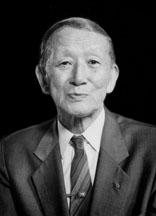Musical prodigies — is that what childhood is for?
It’s time for a rant about musical talent. This is aimed at parents but teachers may like it too.
I just read an article about musical prodigies in which the author of the study claims that musical talent is nearly 50 per cent hereditary. Well so what? What is 50 per cent telling us? That if you are related to musically talented people then you are more likely than most to display musical talent? This doesn’t strike me at all as a revolutionary idea. And it was a pretty small study – only 224 people.
In contrast, I’ve read some stunning research that concluded that all human babies are born with musical predispositions. It was conducted over 30 and more years at the University of Toronto, Mississauga by Prof. Sandra Trehub. And furthermore, she said that musical sophistication can drop away after one year if not nurtured. Now- that’s a study! I’m happy to read about studies of talent, the so-called musical prodigies —but let those studies be about the gifted few (or the “forced-into-it-by-the-ambitious-parent”). Most of the parents reading this belong to the majority of wonderful souls who haven’t been born gifted. Nor have they put in the 10,000 hours of piano or violin practice in childhood that make an international star. But many are happy amateur singers and players, are great audience members at concerts, and they get up and dance at weddings.
How to teach your kids music
Here’s my advice to parents. Teach your kids music experientially, from birth but especially from the age of one when they start pruning away neurons that don’t fire often. What kinds of experiences am I talking about? Singing, dancing, playing the kitchen pots and pans, taking them to live music events and cavorting around your living room with “classical music” turned up loud on the sound system, or whatever music your family loves. Music activities are the way to “teach” music to the young child. Early childhood is for play-time, people! That’s critical – they need play-time, not lesson-time. If you want them to do a music class, enrol them in a local weekly group session with lots of musical activities — percussion instruments, puppets, props, picture books, action games, finger-plays, dress-ups and a big space for dancing to music. If they love going, it’s the right one for them.
What age should they start having instrument lessons?
Definitely not at 3, probably not at 4, possibly at 5 but I recommend letting that play-time and fantasy work it’s magic on the developing body, including that all-important organ, the brain. Later, you can start them on an instrument with a compassionate one-on-one teacher, from about age 6 or 7. Keep them up to their daily practice of 15-30 minutes. They will have a completely transformed musician’s brain after 5 years of training, good enough for a lifetime of musical sophistication — however they want to apply it. Then you know that you managed the “nurture” side of the story magnificently. And they won’t say to you when they are twenty-five “I wanted to play an instrument but you wouldn’t let me. I could be really talented by now.”
What’s a good instrument to start?
Ask your child what they want to learn. That’s the one! Spend money on a good brand and get advice on the right size. Cheap instruments are hard to play and discourage learning because the feedback loop is tainted by the child hearing nasty sounds. Please don’t set them up for failure. This might possibly be an instrument they play throughout their lifetime.
 What about the Suzuki Talent Method?
What about the Suzuki Talent Method?
Let me finish with a reference to the influential music educator Shinichi Suzuki (1898-1998) whose Suzuki Method of teaching music is practised worldwide. His precept is that all children are born with abilities that can be developed and enhanced in a nurturing environment. In fact his method is also known as Talent Education. Suzuki believed that every child is talented. Those talents need nurturing.
Remember, there’s nothing quite like music. It speaks to us all because we are all born musical— yes, we have an innate talent for music. And little kids shouldn’t be musical prodigies, just musical beings.
About the work of Dr. Sandra Trehub:
Musical Predispositions in Infancy
Department of Psychology, University of Toronto at Mississauga, Mississauga, Ontario, Canada L5L 1C6
‘The notion of musical predispositions implies a biological basis for music.’ (Trehub 2001, p.1)
‘the underlying knowledge that makes it possible to produce and understand language or music (i.e., competence) —[and] language or musical expression (i.e., performance).’ (Trehub 2001, p.2)
‘the historical and cross-cultural importance of music in ritual ceremonies,3–6 work,7,8 and childcare.9’ (Trehub 2001, p.2)
“Infants’ resolution of frequency,18,19 timing,20,21 and timbre22,23 is finer than that required for musical purposes. Moreover, perceptual grouping principles that are relevant to music 24,25 are operative in infancy. For example, infants group isochronous tone sequences on the basis of similarities in pitch, loudness, and timbre.26,27
Infants go well beyond such minimal criteria for music perception. Like adults, they recognize a melody when the pitch level is shifted upward or downward.28,29” (Trehub 2001, p.3)
‘Viewed broadly, … music embraces what all musical systems have in common. In that sense, infants begin life as musical beings, being responsive to the musical primitives or universals that are the foundation of all styles of music.’ (Trehub 2001, p.12)


 What about the Suzuki Talent Method?
What about the Suzuki Talent Method?



